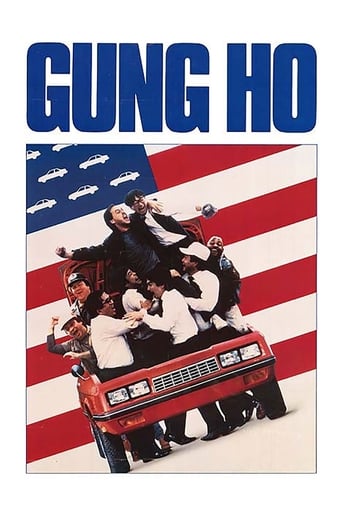When East meets West, the laughs shift into high gear!
"Gung Ho," a 1986 film produced by Paramount Pictures, is a comedic yet poignant exploration of cultural clashes and the challenges of globalization. Directed by Ron Howard, the movie stars Michael Keaton as Hunt Stevenson, a former auto worker who convinces a Japanese company to reopen his shuttered factory in Hadleyville, Pennsylvania. The film delves into the friction that arises as the American workers struggle to adapt to the rigorous Japanese management style, which emphasizes teamwork, discipline, and efficiency. Through humor and heartfelt moments, "Gung Ho" examines themes of cultural misunderstanding, perseverance, and the quest for mutual respect. The narrative of "Gung Ho" is driven by the stark contrast between the laid-back, individualistic American workers and the disciplined, group-oriented Japanese executives. Keaton's character, Hunt, serves as a bridge between these two worlds, navigating the complexities of cultural differences while trying to save his town's economy. The film cleverly uses humor to highlight these differences, such as the American workers' initial resistance to the Japanese practice of morning exercises and the concept of "quality circles." These comedic elements not only entertain but also underscore the deeper message about the importance of understanding and integrating diverse cultural practices. Beyond its comedic surface, "Gung Ho" offers a thoughtful commentary on the economic realities of the 1980s, a time when American industries were increasingly facing competition from abroad. The film captures the tension and anxiety of workers fearing job loss and the lengths they are willing to go to preserve their livelihoods. It also portrays the Japanese executives, led by the stern yet fair Kazihiro, as not just antagonists but as individuals with their own pressures and goals. This balanced portrayal adds depth to the film, making it more than just a simple clash-of-cultures comedy. Ultimately, "Gung Ho" resonates with audiences through its message of compromise and collaboration. The film concludes on an optimistic note, suggesting that while cultural differences can lead to conflict, they can also be a source of strength and innovation when approached with openness and respect. This timeless theme, combined with the film's humor and heartfelt performances, ensures that "Gung Ho" remains a relevant and engaging watch, reflecting the ongoing challenges and opportunities of a globalized world.
*If our moderation approves your version, it will be replaced and you will be credited as the text author.
Year1986
Budget13000000$
Runtime111 min
Revenue36611610$
GenresComedyDrama
Production countriesUnited States of America

